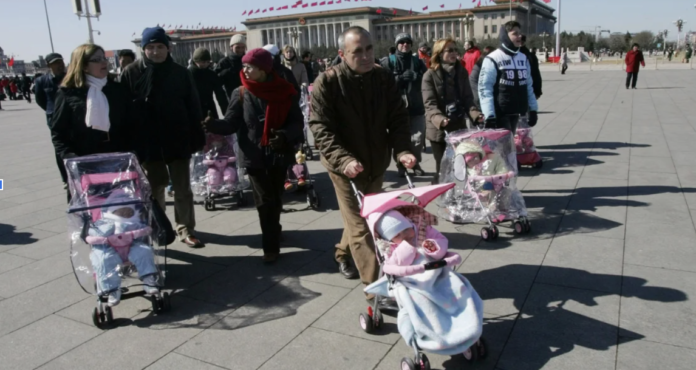By Jessica Park
For nearly 30 years, China sent tens of thousands of children overseas for adoption, largely due to its one-child policy, which led many families to abandon their babies. Now, China has announced that it will no longer allow most foreign adoptions, citing global trends. As China’s economy has grown, the government has allocated more resources to support orphans, leading to a slowdown in international adoptions. Additionally, fewer children are available for adoption due to lower birth rates, as officials work to reverse the country’s declining birth rates and prevent a demographic crisis. The decision was officially confirmed with a brief statement from the foreign ministry on September 6, 2024.
Many American families, who had already been approved by both U.S. and Chinese authorities to adopt, were shocked by the news that they could no longer continue the process. At least six families shared their devastation, having spent months preparing for the arrival of their adopted children by modifying their homes and sending gifts. Courtney Moore, from Houston, mentioned that she and her husband had been sending packages to the orphanage in southern China where their future son was living, but communication stopped at the end of 2022, leaving them feeling hopeless.
From 1979 to 2015, China implemented a strict one-child policy to reduce its population. When families were restricted to having only one child, many chose to keep male children, who are traditionally expected to be the main caregivers for their families, and gave up females for adoption. Since 1992, over 160,000 Chinese children have been adopted by families across the world, with 82,000–mostly girls adopted in the United States, according to China’s Children International.
Experts like Guo Wu, an associate professor of Chinese studies, believe China’s new policy on adoption reflects a growing sense of national pride and a shift in sentiment toward the United States. “This policy might fulfill that feeling that ‘we don’t need to send our kids to America,’” Wu said. Peter Moller, co-founder of the Danish Korean Rights Group, supported China’s decision to end most foreign adoptions, noting concerns about abuse and neglect in international adoptions. He emphasized that international adoption can be challenging for both the children and their biological families.
China’s decision to end most international adoptions is not unique. Other countries, such as Denmark, Ethiopia, Russia, and Kazakhstan, have also limited or stopped foreign adoptions in recent years, often due to concerns about abuse, falsified documents, and lack of accountability. While China’s Foreign Ministry has informed the U.S. that it will not process new international adoptions, some exceptions may be made, such as those involving relatives. Meanwhile, many American families remain in a state of uncertainty, hoping for a change in policy that would allow them to complete their adoptions.

